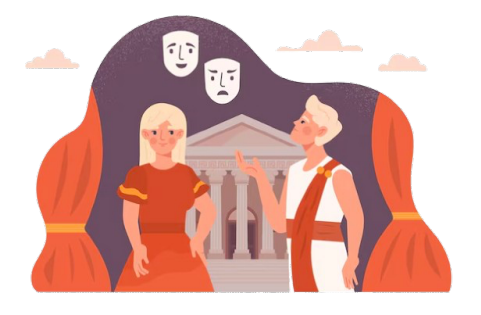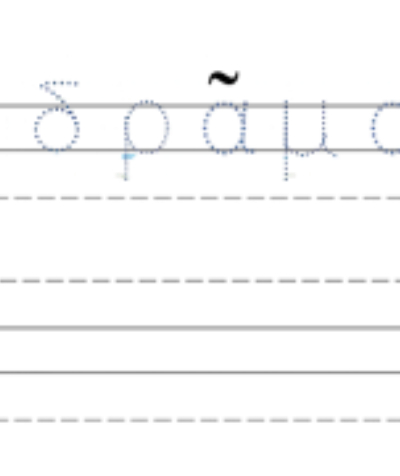Have you ever wondered how the electrifying performances on stage, the mystery plots on our screens, or the captivating stories that engage audiences in theaters worldwide started in the first place?
All these experiences trace back to a single, powerful word: «δρᾶμα».
The word drama (δρᾶμα - dhráma), comes from the Greek verb δρᾶν (pronounced “dhran”), meaning “to do” or “to act”. In its essence, drama embodies action and this concept of action was central to the rituals dedicated to the Greek God, Dionysus. His followers would gather to celebrate with plays, music, and dance.
Dionysus was born of Zeus and the mortal Semele, bridging the divine with the human. His festivals were called the Dionysia and they were the cradle of ancient Greek drama. It was there, in the open-air theaters of Athens, that the idea of “drama” as we know it began to take shape, evolving from mere storytelling into a sophisticated art form.
Most of the words used in drama are rooted in Ancient Greek:
“theater” comes from θέατρον (théatron),
while “comedy” and “tragedy" come from the words κωμῳδία and τραγῳδία.
“Scene” derives from σκηνή (skiní), and
“protagonist,” meaning the leading character, from πρωταγωνιστής (protagonistís).
These words remind us of the rich cultural and intellectual legacy that continues to shape the world of drama and beyond.
So, the next time someone calls you a “drama queen” or “drama king,” wear it like a crown! For this is a nod to the ancient Greek past that lives on through the words we still use today. Let's embrace our roles on the grand stage of life, where each of us can be a protagonist in our own epic tale, full of adventure, laughter, and Dionysian magic!
P.S. From Anya: As always, a special thanks to our Classical KIDS members for their kind support. If you’d like to join our small but rapidly growing community of parents and educators dedicated to bringing ancient wisdom to future minds, kindly consider becoming a member here, today…
Questions:
1. Can you think of a recent play, movie, or TV show you watched and describe how it uses elements of drama to tell its story? How do the characters, setting, and plot work together to keep you engaged?
2. Do you think the ancient Greeks' way of storytelling through drama is similar to or different from how we tell stories today? How so? Consider the themes, characters, and settings in your comparison.
Activities :
1. Create Your Own Greek Play:
Imagine you're a playwright in ancient Greece, tasked with writing a play for the Dionysia festival. Create a short play or storyboard that includes a clear beginning (introduction of the problem), middle (the conflict), and end (resolution). Include a hero or heroine who faces a moral dilemma, typical of Greek tragedies or comedies.
2. Drama Word Treasure Hunt:
Go on a word treasure hunt in your favorite books, movies, or plays to find terms that originate from Ancient Greek. See if you can find words like drama (or dramatic), theater (or theatrical), comedy (or comedian), tragedy (or tragic), scene (or scenery) and protagonists (or agony). Write down the words you find and research their origins. Share your findings with friends or family members, and discuss how these ancient words are used in a modern context.
3. Write it out:
Practice writing ancient Greek with our traceable printout:




